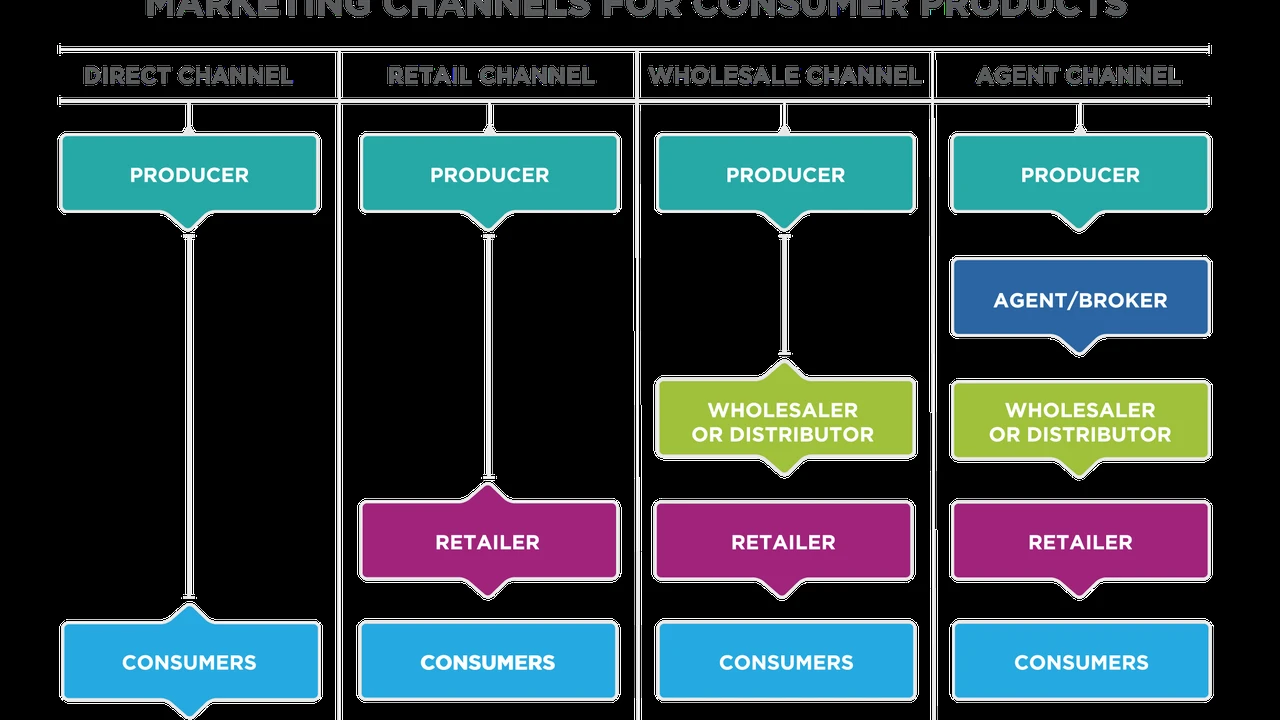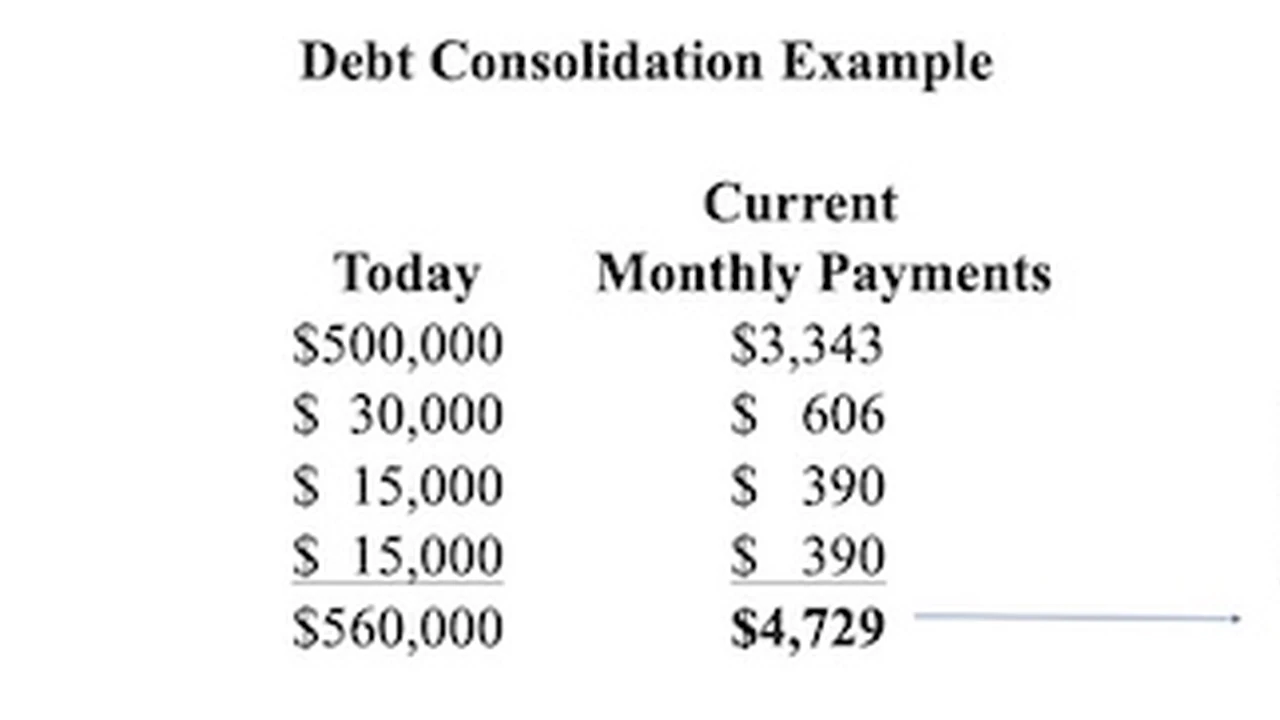Consumer Protection for Debt Consolidation in Southeast Asia
A review of consumer protection measures and regulations for debt consolidation services in Southeast Asian countries.

Consumer Protection for Debt Consolidation in Southeast Asia Safeguarding Your Financial Journey
Navigating the world of debt consolidation can be a complex endeavor, especially in the diverse and rapidly evolving financial landscapes of Southeast Asia. While debt consolidation offers a lifeline to many struggling with multiple debts, it's crucial to understand the consumer protection measures in place to safeguard your financial well-being. This comprehensive guide delves into the regulations, rights, and resources available to consumers seeking debt consolidation across key Southeast Asian nations, including Singapore, Malaysia, Thailand, the Philippines, and Indonesia. We'll explore how these protections vary, what to look out for, and how to make informed decisions to avoid potential pitfalls.
Understanding the Landscape of Debt Consolidation Consumer Rights in Southeast Asia
Southeast Asia is a mosaic of economies, each with its own regulatory framework governing financial services. While the overarching goal of consumer protection remains consistent – to ensure fair practices, transparency, and recourse for consumers – the specifics can differ significantly. Generally, consumer protection for debt consolidation revolves around several key pillars:
- Transparency in Fees and Charges: Lenders and service providers are typically required to disclose all fees, interest rates, and charges upfront, ensuring consumers understand the total cost of their consolidation.
- Fair Lending Practices: Regulations aim to prevent predatory lending, usurious interest rates, and deceptive marketing tactics.
- Data Privacy and Security: Protection of personal and financial data is paramount, with laws governing how institutions collect, store, and use consumer information.
- Dispute Resolution Mechanisms: Consumers should have access to clear and effective channels for resolving complaints and disputes with financial institutions.
- Responsible Lending Guidelines: Some countries implement guidelines to ensure lenders assess a borrower's ability to repay before extending credit, preventing over-indebtedness.
Let's break down the specifics by country to provide a clearer picture.
Singapore Debt Consolidation Consumer Safeguards and Regulatory Bodies
Singapore boasts a highly regulated and sophisticated financial sector, with robust consumer protection. The primary regulatory body is the Monetary Authority of Singapore (MAS), which oversees banks, finance companies, and other financial institutions. For debt consolidation, key protections include:
- Fair Dealing Guidelines: MAS expects financial institutions to treat customers fairly, providing clear and accurate information.
- Responsible Lending: Banks are required to assess a borrower's creditworthiness and ability to repay before approving loans, including debt consolidation loans.
- Total Debt Servicing Ratio (TDSR): This framework limits the amount individuals can borrow based on their gross monthly income, preventing over-leveraging. While primarily for property loans, its principles influence overall credit assessment.
- Financial Industry Disputes Resolution Centre Ltd (FIDReC): FIDReC provides an independent and impartial avenue for consumers to resolve disputes with financial institutions.
Recommended Products and Scenarios in Singapore:
For debt consolidation in Singapore, consumers often turn to personal loans or specific debt consolidation plans offered by banks. Here are a few examples, keeping in mind that interest rates and terms are subject to change and depend on individual credit profiles:
- DBS Debt Consolidation Plan: DBS, one of Singapore's largest banks, offers debt consolidation plans designed to combine various unsecured debts into a single loan with a potentially lower interest rate. They emphasize transparent fees and a clear repayment schedule. Typical APR: 3.88% - 10.88% (effective interest rate, EIR, can be higher).
- OCBC Debt Consolidation Plan: Similar to DBS, OCBC provides competitive debt consolidation options. They often highlight features like fixed monthly payments and the potential for interest savings. Typical APR: 4.00% - 11.00% (EIR can be higher).
- Standard Chartered Debt Consolidation Plan: Standard Chartered also offers plans with varying tenures and interest rates, often with promotional offers for new customers. Typical APR: 3.98% - 10.98% (EIR can be higher).
Usage Scenario: A Singaporean professional earning S$5,000 per month has S$30,000 in credit card debt across three cards, with average interest rates of 25% p.a. By consolidating with a DBS Debt Consolidation Plan at an EIR of 7% p.a. over 5 years, their monthly payment could drop significantly, saving them thousands in interest. They would use the FIDReC if they encountered any issues with the bank's service or transparency.
Malaysia Debt Consolidation Consumer Rights and Regulatory Framework
In Malaysia, consumer protection for financial services falls under the purview of Bank Negara Malaysia (BNM), the central bank. BNM has established several initiatives to protect consumers, particularly in lending and debt management:
- Financial Consumer Protection Act (FCPA) 2012: This act provides a comprehensive framework for consumer protection in the financial sector, covering areas like disclosure, fair treatment, and redress mechanisms.
- Code of Conduct for Lending: BNM issues guidelines for financial institutions to ensure responsible lending practices, including proper assessment of affordability.
- Credit Counselling and Debt Management Agency (AKPK): While not a regulator, AKPK is a government agency that provides free financial counseling and debt management programs, including debt consolidation advice, to individuals. They act as a crucial resource for consumers.
- Financial Ombudsman Scheme (FOS): FOS provides an independent and impartial avenue for financial consumers to resolve disputes with financial service providers.
Recommended Products and Scenarios in Malaysia:
Malaysian banks offer various personal loans that can be used for debt consolidation. AKPK also plays a significant role in guiding consumers towards suitable solutions.
- Maybank Personal Loan: Maybank, a leading bank in Malaysia, offers personal loans with competitive rates for debt consolidation. They often have flexible repayment tenures. Typical interest rates: 4.5% - 8.0% p.a. (flat rate, effective rate will be higher).
- CIMB Cash Plus Personal Loan: CIMB provides personal loans that can be used to consolidate debts, often with quick approval processes. Typical interest rates: 4.99% - 9.99% p.a. (flat rate).
- RHB Personal Financing: RHB offers personal financing options, including those suitable for debt consolidation, with varying eligibility criteria. Typical interest rates: 5.0% - 9.5% p.a. (flat rate).
Usage Scenario: A Malaysian small business owner has accumulated RM40,000 in personal loans and credit card debt with high interest. They approach AKPK for advice, who recommends consolidating their debts into a lower-interest personal loan from Maybank. With a new loan at 6% flat rate over 7 years, their monthly payments become more manageable, freeing up cash flow for their business. If they feel unfairly treated by the bank, they can escalate their complaint to FOS.
Thailand Debt Consolidation Consumer Rights and Regulatory Oversight
In Thailand, the Bank of Thailand (BOT) is the primary regulator for financial institutions. Consumer protection is a growing focus, with efforts to enhance transparency and fairness in lending practices.
- Consumer Protection Act B.E. 2522 (1979) and Amendments: This act provides general consumer protection, which extends to financial services, ensuring fair contract terms and preventing deceptive advertising.
- BOT Regulations on Fair Treatment of Customers: The BOT issues guidelines for financial institutions to ensure fair treatment, responsible lending, and clear disclosure of information.
- Financial Consumer Protection Center (FCPC): Established by the BOT, the FCPC serves as a channel for consumers to lodge complaints and seek advice regarding financial services.
Recommended Products and Scenarios in Thailand:
Thai banks offer personal loans and specific debt consolidation products. It's important to compare offers carefully due to varying interest rate structures.
- Kasikornbank Personal Loan: Kasikornbank (KBank) is a major player offering personal loans that can be used for debt consolidation. They often have online application processes. Typical interest rates: 15% - 25% p.a. (reducing balance).
- Siam Commercial Bank (SCB) Personal Loan: SCB provides personal loans with different repayment periods and interest rates, suitable for consolidating various debts. Typical interest rates: 16% - 28% p.a. (reducing balance).
- Krungsri Personal Loan: Krungsri (Bank of Ayudhya) also offers personal loans with competitive rates, often with promotions. Typical interest rates: 14% - 26% p.a. (reducing balance).
Usage Scenario: A Thai teacher has ฿150,000 in credit card and personal loan debt, with an average interest rate of 20% p.a. They decide to consolidate with a Kasikornbank Personal Loan at 18% p.a. over 4 years. This simplifies their payments and potentially reduces their overall interest burden. If they encounter any issues, the FCPC is their go-to for assistance.
The Philippines Debt Consolidation Consumer Rights and Regulatory Bodies
In the Philippines, the Bangko Sentral ng Pilipinas (BSP) is the central bank and primary regulator of financial institutions. Consumer protection is a key mandate, with efforts to promote financial literacy and protect consumers from unfair practices.
- Republic Act No. 7394 (Consumer Act of the Philippines): This comprehensive law protects consumers against deceptive, unfair, and unconscionable sales acts and practices, including those in financial services.
- BSP Circulars on Financial Consumer Protection: The BSP issues various circulars and regulations to ensure financial institutions adhere to fair and transparent practices, including disclosure requirements for loans.
- Financial Consumer Protection Department (FCPD) of BSP: The FCPD handles consumer complaints and inquiries related to financial products and services.
Recommended Products and Scenarios in the Philippines:
Personal loans from major banks are the most common route for debt consolidation in the Philippines.
- BDO Personal Loan: BDO Unibank, one of the largest banks, offers personal loans that can be used for debt consolidation. They have a wide branch network. Typical interest rates: 1.25% - 1.50% per month (flat rate, effective rate will be higher).
- BPI Personal Loan: Bank of the Philippine Islands (BPI) provides personal loans with flexible terms for debt consolidation. Typical interest rates: 1.20% - 1.40% per month (flat rate).
- Metrobank Personal Loan: Metrobank also offers personal loans with competitive rates for consolidating various debts. Typical interest rates: 1.30% - 1.60% per month (flat rate).
Usage Scenario: A Filipino call center agent has PHP100,000 in outstanding balances across two credit cards and a small personal loan, with an average effective interest rate of 36% p.a. They apply for a BPI Personal Loan at a flat rate of 1.3% per month (approximately 28% effective p.a.) over 3 years. This significantly reduces their monthly payments and total interest paid. If they encounter any issues, they can reach out to the FCPD of BSP for assistance.
Indonesia Debt Consolidation Consumer Rights and Regulatory Framework
In Indonesia, the Otoritas Jasa Keuangan (OJK), or Financial Services Authority, is the independent government agency responsible for regulating and supervising financial services activities. OJK plays a crucial role in protecting consumers.
- Law No. 21 of 2011 on the Financial Services Authority: This law empowers OJK to protect consumers and the public from financial service providers' detrimental actions.
- OJK Regulations on Consumer Protection: OJK issues specific regulations covering areas like transparency, fair treatment, and dispute resolution for financial products, including loans.
- Consumer Protection and Education Department of OJK: This department handles consumer complaints and provides financial literacy education.
Recommended Products and Scenarios in Indonesia:
Indonesian banks offer personal loans and sometimes specific debt consolidation products. The rise of fintech lenders also provides alternatives, though consumers should exercise extra caution with these.
- Bank Mandiri KSM (Kredit Serbaguna Mandiri): Bank Mandiri, a large state-owned bank, offers personal loans that can be used for debt consolidation. Typical interest rates: 0.99% - 1.50% per month (flat rate, effective rate will be higher).
- BCA Personal Loan: Bank Central Asia (BCA) provides personal loans with competitive rates and flexible tenures for debt consolidation. Typical interest rates: 1.00% - 1.60% per month (flat rate).
- BNI Fleksi: Bank Negara Indonesia (BNI) offers personal loans that can be utilized to consolidate various debts. Typical interest rates: 1.10% - 1.70% per month (flat rate).
Usage Scenario: An Indonesian entrepreneur has IDR50,000,000 in various unsecured debts, including online loans and credit card balances, with an average effective interest rate of 40% p.a. They secure a Bank Mandiri KSM loan at a flat rate of 1.2% per month (approximately 26% effective p.a.) over 5 years. This significantly reduces their monthly financial burden and helps them regain control. If they face any issues with the bank, they can report it to OJK's Consumer Protection and Education Department.
Key Considerations for Consumers Across Southeast Asia When Consolidating Debt
Regardless of the country, several universal principles apply when seeking debt consolidation:
- Read the Fine Print: Always thoroughly review loan agreements, terms, and conditions. Understand all fees, charges, and penalties.
- Compare Offers: Don't settle for the first offer. Shop around and compare interest rates, repayment terms, and fees from multiple lenders.
- Beware of Scams: Be wary of unsolicited offers, promises of guaranteed approval regardless of credit history, or demands for upfront fees before any service is rendered. Legitimate lenders will assess your credit.
- Understand the Impact on Your Credit Score: While consolidation can eventually improve your score, the initial application might cause a temporary dip. Missing payments will severely damage it.
- Seek Professional Advice: If unsure, consult with a reputable financial advisor or a government-backed credit counseling agency (like AKPK in Malaysia).
- Verify Lender Credentials: Ensure the lender or service provider is licensed and regulated by the appropriate authority in your country (e.g., MAS, BNM, BOT, BSP, OJK).
- Keep Records: Maintain copies of all correspondence, agreements, and payment records.
The Importance of Financial Literacy in Debt Consolidation Decisions
Consumer protection measures are most effective when consumers are financially literate and empowered. Understanding basic financial concepts, knowing your rights, and being able to identify red flags are crucial. Many regulatory bodies in Southeast Asia actively promote financial literacy programs to equip citizens with the knowledge needed to make sound financial decisions, including those related to debt consolidation.
Navigating Disputes and Seeking Redress for Debt Consolidation Issues
Even with robust protection, disputes can arise. Knowing the proper channels for redress is vital:
- First, Contact the Financial Institution: Always start by lodging a formal complaint directly with the bank or financial service provider. Most institutions have dedicated customer service or complaints departments.
- Escalate to the Regulator/Ombudsman: If the issue remains unresolved or you are dissatisfied with the institution's response, escalate your complaint to the relevant regulatory body or financial ombudsman service in your country (e.g., FIDReC in Singapore, FOS in Malaysia, FCPC in Thailand, FCPD of BSP in the Philippines, OJK in Indonesia). These bodies provide impartial mediation and resolution services.
- Legal Action (Last Resort): As a final resort, if all other avenues fail, legal action through the courts may be considered, though this is often a costly and time-consuming process.
The Future of Debt Consolidation Consumer Protection in Southeast Asia
As the financial landscape in Southeast Asia continues to evolve, driven by digitalization and increasing financial inclusion, consumer protection frameworks are also adapting. Regulators are constantly working to address new challenges, such as those posed by fintech lenders and cross-border financial services. Expect to see continued emphasis on:
- Digital Consumer Protection: Safeguarding consumers in the digital lending space, including data privacy and cybersecurity.
- Harmonization of Standards: Efforts to align consumer protection standards across ASEAN member states, making it easier for consumers and businesses operating regionally.
- Enhanced Financial Literacy: Continued investment in educational initiatives to empower consumers.
- Proactive Supervision: Regulators taking a more proactive approach to identify and mitigate risks to consumers before they escalate.
Ultimately, while debt consolidation can be a powerful tool for financial recovery, being an informed and vigilant consumer is your best defense. Understand the rules, know your rights, and utilize the resources available to ensure your debt consolidation journey in Southeast Asia is safe and successful.
:max_bytes(150000):strip_icc()/277019-baked-pork-chops-with-cream-of-mushroom-soup-DDMFS-beauty-4x3-BG-7505-5762b731cf30447d9cbbbbbf387beafa.jpg)






